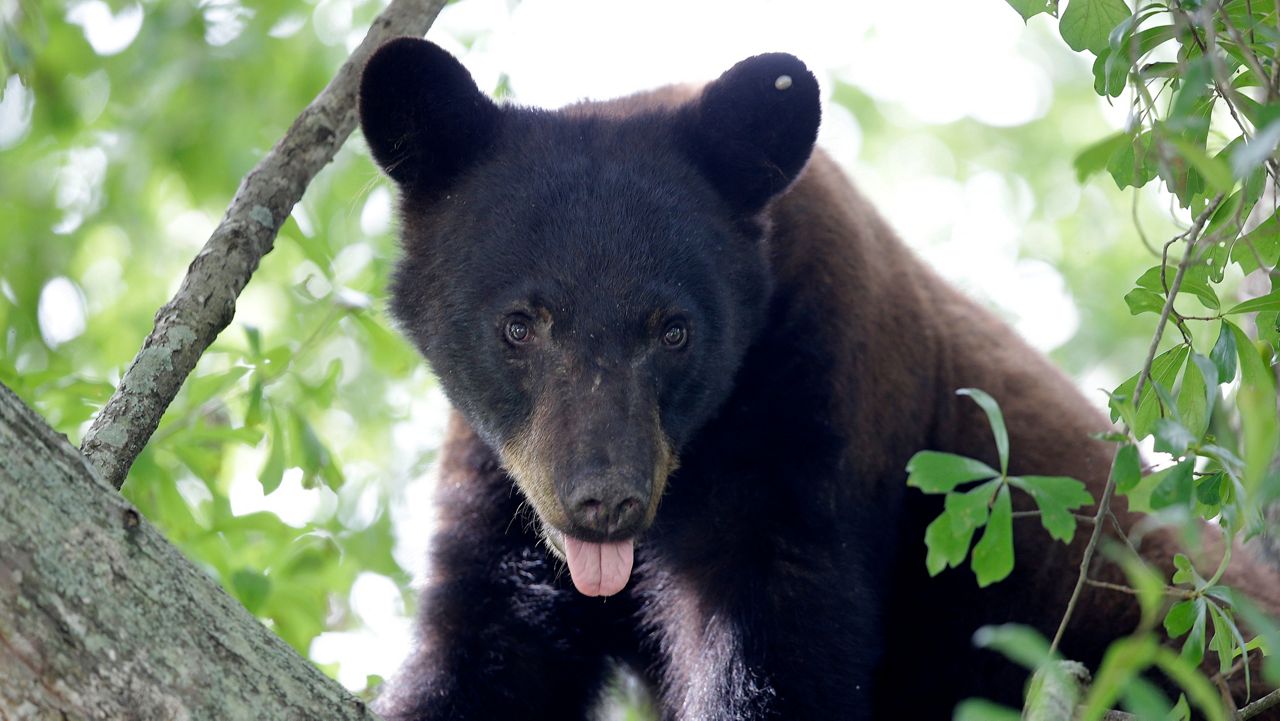RALEIGH, N.C. — State wildlife experts are offering residents tips for living with black bears as the state’s population of this native animal grows and increasingly shares space with people.
Bear sightings rise from May through July, when young bears are driven to look for new homes as female adults begin to breed, the N.C. Wildlife Resources Commission said Thursday in a news release.
Bears are most common in the mountains and coastal plain but are pushing into the Piedmont.
“Most bears that wander into a residential area will quickly retreat to their natural habitat, particularly if no food source is around,” Wildlife Agency Biologist Colleen Olfenbuttel said.
The wildlife agency says that it does not typically trap or remove bears and urges residents to make adjustments that reduce interaction between bears and people.
State biologists offer six pieces of advice for living with bears:
- Never feed or approach a bear – offering food teaches bears to approach people for more
- Secure outdoor food, garbage and recycling, and place trash outside as close to the time for pickup as possible
- Remove bird feeders when bears are active, as seed and hummingbird nectar can attract bears
- Don’t leave pet food outdoors, and try to feed pets indoors
- Clean fat and food particles from grills and store them in a secure area
- Communicate with neighbors about bear activity and share information about how to avoid bear conflicts
If you see a bear, the wildlife agency says a hands-off approach is best, allowing the bear to leave on its own.
“While these young bears, typically males, may appear to be wandering aimlessly around, they are not necessarily lost,” Olfenbuttel said. “Most are simply exploring their new surroundings and will move on, particularly if they are left alone and there is no food around.”
The website BearWise provides more information and resources about living alongside bears.
